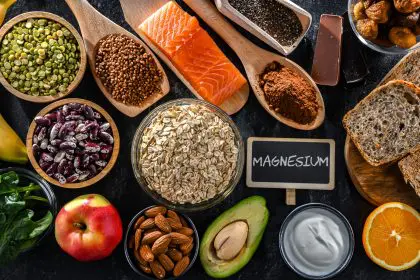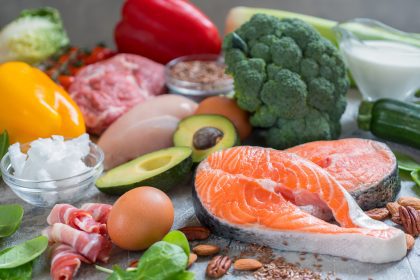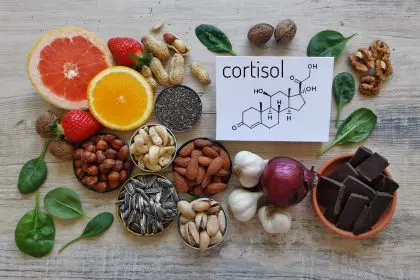The Power of Beans in Modern Nutrition
Americans are drastically underserving themselves at the dinner table, and beans might be the unexpected culprit. While countless diet trends come and go, researchers have discovered that this simple pantry staple could be the key to transforming the nation’s dietary health.
Breaking New Ground in Nutritional Science
A groundbreaking study examining more than 44,000 participants has revealed that adding it to daily meals can significantly boost overall diet quality. The research, presented at the Academy of Nutrition and Dietetics conference in Minneapolis, demonstrates that even modest increases in bean consumption can lead to remarkable improvements in nutritional intake.
“The data clearly shows that incorporating into daily meals can dramatically improve the Healthy Eating Index scores,” explains Joanne Slavin, PhD, RD, who serves as a professor at the University of Minnesota. Her team’s findings suggest that it act as a nutritional catalyst, simultaneously increasing essential nutrients while reducing harmful dietary components.
The American Bean Gap
Perhaps the most striking revelation from recent research is that 80% of American adults fall short of recommended legume consumption. This dietary deficit carries significant implications, as previous studies have established strong connections between regular legume intake and reduced mortality rates, particularly from heart disease.
Inside the Research
The comprehensive analysis drew from nearly two decades of National Health and Nutrition Examination Survey (NHANES) data, spanning 2001 to 2018. Researchers focused on adults across two age groups: 19-50 years and 51-plus years, utilizing detailed 24-hour dietary recall surveys matched against USDA’s Healthy Eating Index standards.
Measuring Impact When participants added just one serving (1/2 cup) of beans to their daily diet, researchers observed a 15-16% improvement in overall diet quality. Those who incorporated two servings experienced even more substantial benefits, with diet quality increasing by 19-20%.
The Bean Benefit Breakdown
Beyond basic nutrition, beans are more than just a versatile ingredient—they’re packed with health benefits that go beyond basic nutrition. Incorporating beans regularly into your diet has been shown to lower the risk of various chronic health conditions. Here’s a breakdown of how it contributes to overall health:
- Heart disease and stroke: The high fiber content helps lower LDL cholesterol, reducing the risk of cardiovascular disease and stroke. It also contain heart-protective antioxidants and minerals like magnesium and potassium, which help regulate blood pressure.
- Type 2 diabetes: Beans’ low glycemic index means they cause a slower rise in blood sugar, making them an ideal food for managing blood glucose levels. They provide sustained energy and reduce the risk of insulin resistance, a precursor to Type 2 diabetes.
- Various forms of cancer: Rich in antioxidants and phytonutrients, which help fight inflammation and reduce oxidative stress. Studies have linked regular bean consumption with lower risks of certain cancers, including colorectal and breast cancer.
- High cholesterol: The soluble fiber can help lower total and LDL cholesterol by binding to cholesterol in the digestive tract, reducing its absorption. This improves overall heart health.
Beans are also excellent sources of plant-based protein, fiber, and essential minerals like calcium, iron, and phosphorus, all contributing to long-term health and wellness.
Practical implementation
Incorporating beans into daily meals can be easy and doesn’t require much culinary expertise. Here are some simple ways to enjoy their benefits:
- Adding beans to everyday dishes like salads and soups: Beans can boost the nutritional profile of meals you’re already making. Tossing beans into salads or soups provides extra protein and fiber, making the dish more filling.
- Substituting hummus for traditional sandwich spreads: Hummus, made from chickpeas, can be a nutritious alternative to high-fat spreads like mayonnaise. It adds flavor, fiber, and protein, creating a more balanced meal.
- Including beans in pasta dishes and casseroles: Adding beans to pasta or casseroles can enhance the dish’s texture and protein content. It also helps you reduce reliance on meat while keeping meals satisfying and nutrient-dense.
- Keeping canned beans on hand for quick meal additions: Canned beans offer convenience and can quickly be added to almost any meal, from stir-fries to grain bowls. Rinsing canned beans helps reduce sodium content, making them an even healthier choice.
Beans are a highly adaptable, nutritious, and budget-friendly food, offering numerous health advantages with minimal effort.
Looking Ahead
While the research presents compelling evidence for increased bean consumption, scientists acknowledge certain study limitations. The reliance on self-reported dietary recalls and the need for more research on long-term effects of increased bean consumption represent areas for future investigation.
Nevertheless, the evidence strongly supports making beans a dietary priority. As winter approaches, these versatile legumes offer an affordable, accessible way to enhance nutrition and overall health outcomes.

















